Which stage of the Tour de France to pick? As the dominant event on the calendar it attracts the best riders at the top of their game but this alone doesn’t ensure good racing. What helped was the second weekend of racing as the race reached the Jura mountains where one day of superb racing set up the next.
The first day in the Jura was a medium mountain stage and one of the rare chances for a breakaway to stick given the repeated sprint finishes; dominated by Marcel Kittel who had taken three stages already. Stage 8 went to Les Rousses via a series of unheralded but rewardingly scenic climbs lost in the Jura – off all the stages ridden in recon this was a delight – and started off with a fierce pace. It took 90 minutes of relentless racing before the day’s breakaway formed, some 50 riders barged clear and then split again. The scenario was constantly changing with groups forming and reforming as if the peloton was a giant lava lamp. Later on Warren Barguil was instrumental in pulling a group clear that included Greg Van Avermaet, Robert Gesink, Serge Pauwels and Lilian Calmejane. For Calmejane the fear was that he’d show too early, a chicklet surrounded by old foxes. But it was Barguil who was using up energy and only later did Calmejane make his move and he stayed away, just, despite cramp and the best efforts of Gesink.
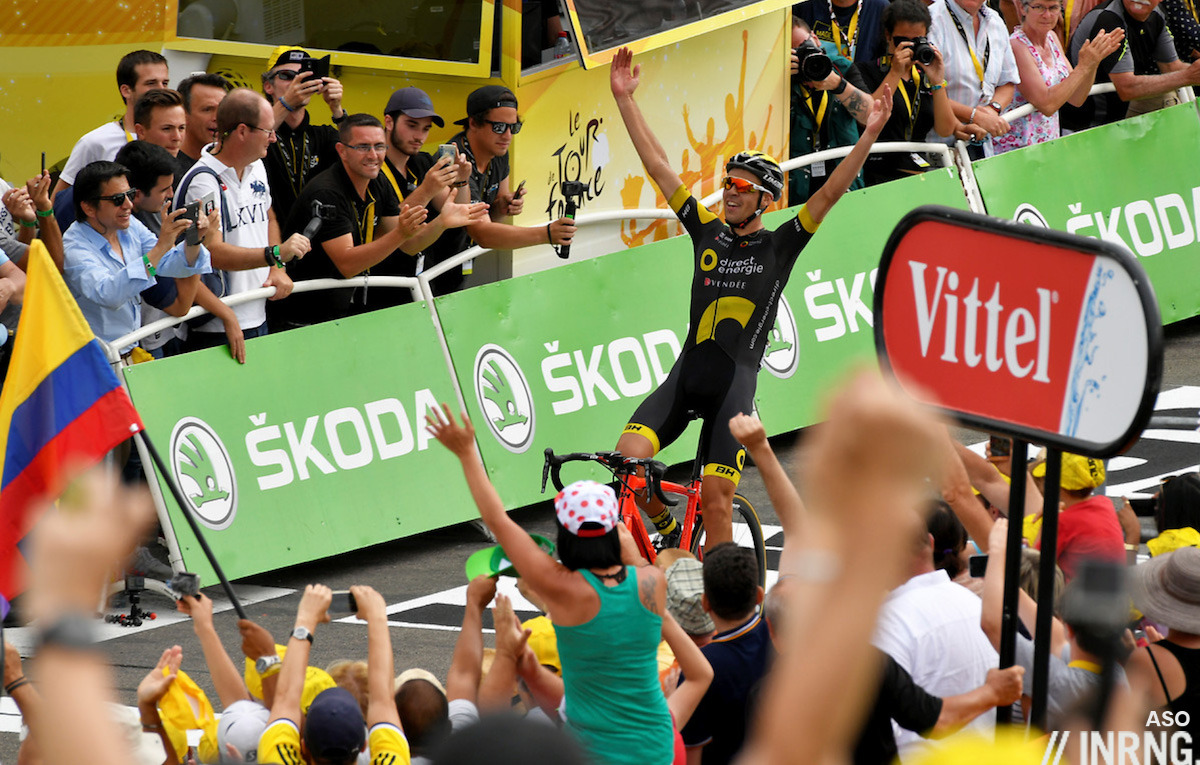
If much of the peloton raced Stage 8 like there was no tomorrow Stage 9 came the next day. This was the stage many had been anticipating, the Jura trilogy of the Biche, Grand Colombier and the Mont du Chat. Another lively start, so frenetic that riders were crashing up the first climb of the day including Gesink who’d done so much the previous day and was out with a broken back.
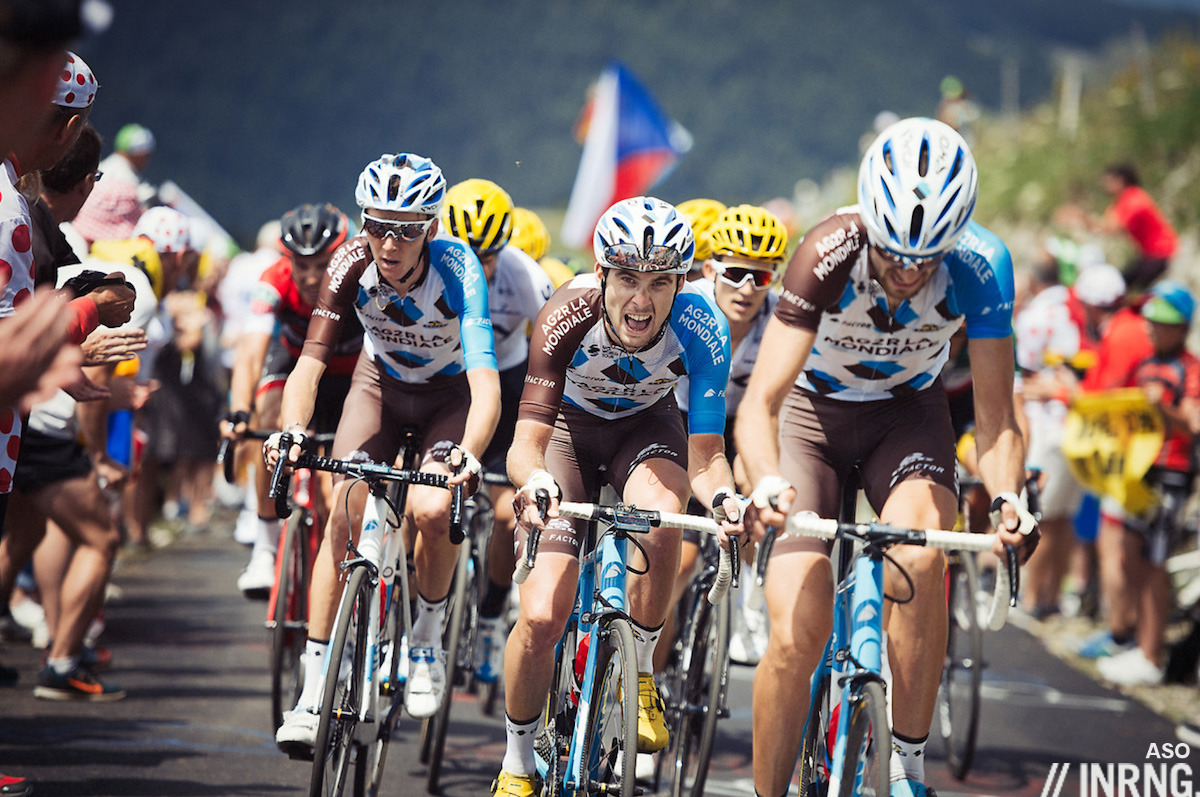
Ag2r La Mondiale cranked up the pace mid-stage. Their race HQ was just near the finish so this was almost home soil for team manager Vincent Lavenu. It looked brave, plucky even for this small team to threaten Team Sky but they had a homogenous team around Bardet and would set the pace at other times too. Part of this included attacking the descent of the Col de la Biche where the pace was too high for the TV motos as well as the likes of Geraint Thomas and Rafał Majka.
Thibaut Pinot was among those showing early but he could not sustain it. Instead Warren Barguil would be the French hero of the day, going in the breakaway and then being the only rider to stay clear of the yellow jersey contenders as they closed in.
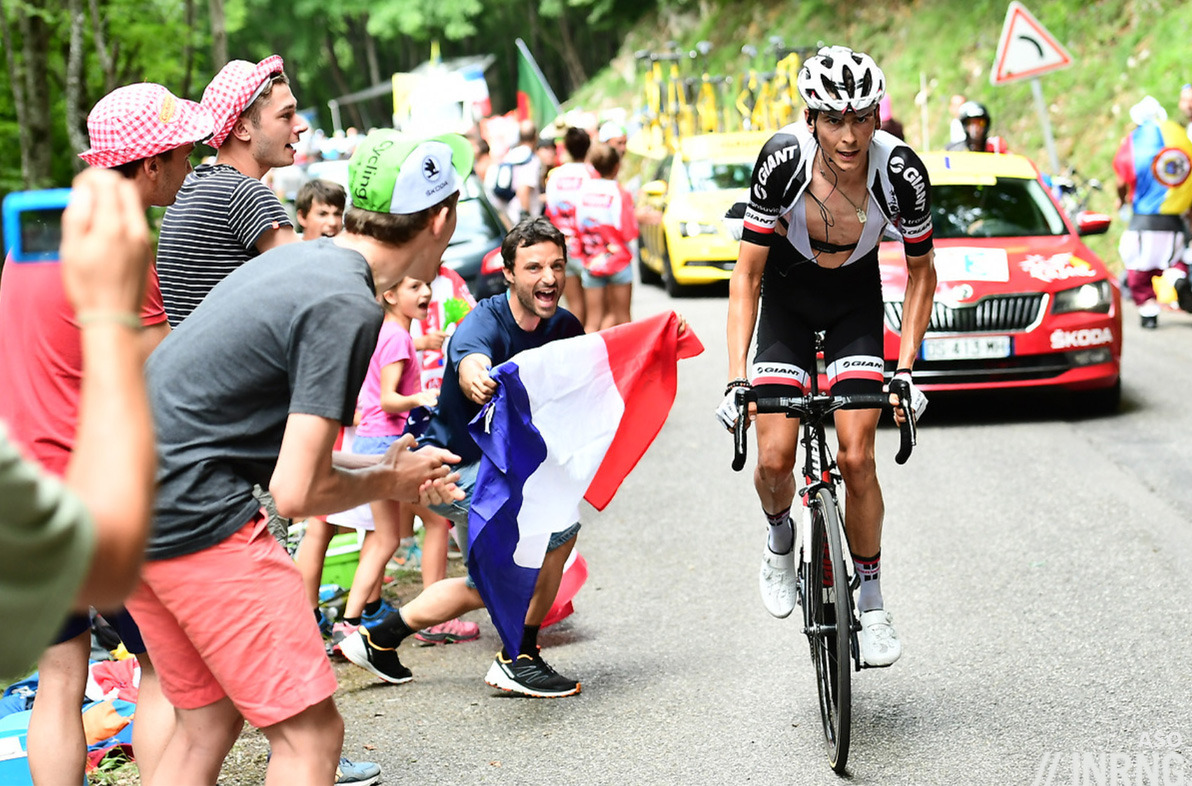
Their speed had been increased by early attaching by Fabio Aru who surged after Froome had a mechanical. Aru said he didn’t notice Froome; Froome said he didn’t notice Aru. Neither sounded credible but this was a matter for them to resolve rather than television or Twitter. Social media was erupting like Krakatoa but is irrelevant to the race, a point proven moments later when Aru, Fuglsang and Froome shared the work to bring back Bardet.
Bardet tried a late attack but the road to Chambéry was too flat and too long and was caught. A sprint and Barguil thought he had won only for the photo-finish to show Urán had it.
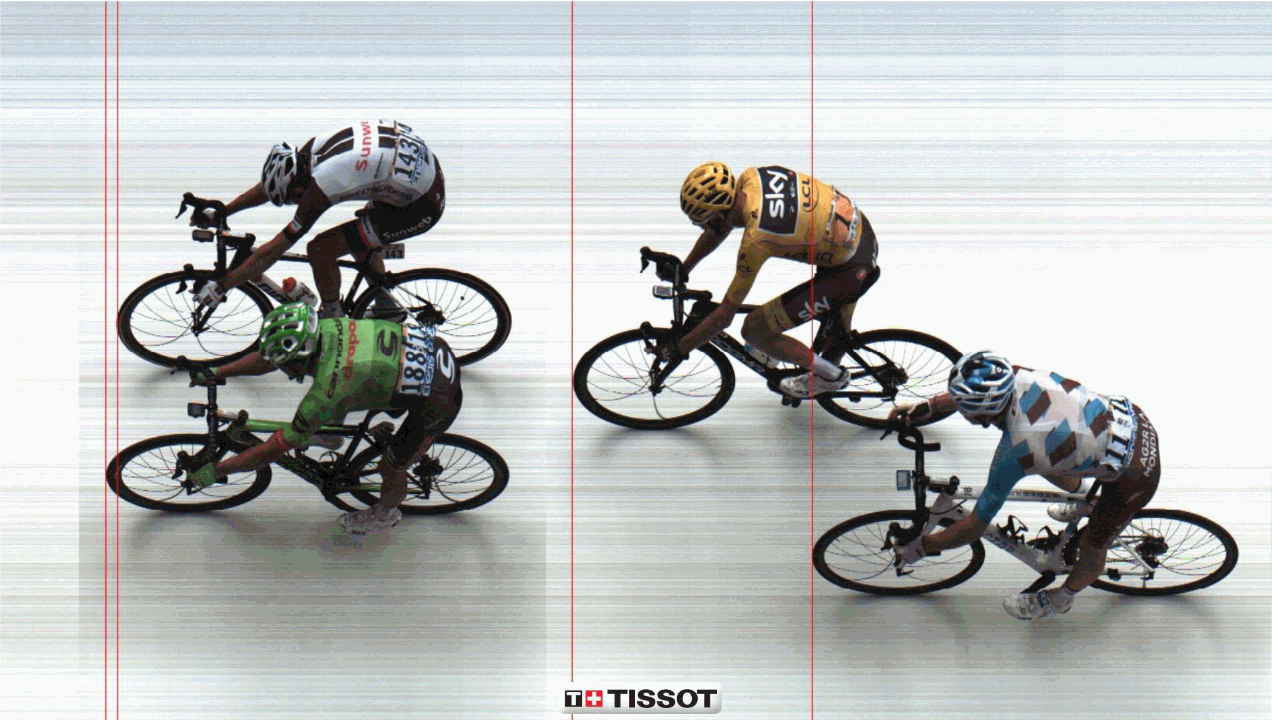
Why the highlight?A great weeke of racing. Stage 9 went feral from start to finish and on several levels too, whether Michael Matthews infilitrating the breakaway in order to win the intermediate sprint or the travails of Arnaud Démare and others trying to make the time cut. Meanwhile there was plenty of action and excitement among the top contenders and it was one of those days where you pitied the video producers trying to make edited highlights as they’d be up to shoulders in cuttings. It was draining just watching on the sofa.
There was hesitation picking this over the stage to Foix because Richie Porte crashed out. This was a lowlight, both in the moment for the fear it evoked as he hurtled into a rocky mountainside at speed and for the duration as it deprived us of a genuine contender. Similarly Dan Martin was hobbled by Porte’s fall.
With hindsight: There was the podium over the Mont du Chat with Froome, Urán and Bardet accompanied by future yellow jersey wearer Aru and polka dot winner Warren Barguil. Looking back the stage was that selective.
Aru’s attack was premature. The Mont du Chat is so steep that even a small acceleration costs beaucoup energy. He’d have been better served by getting Fuglsang to up the pace a notch while Froome put himself in the red to work back…and then to attack later. Hindsight of course.
Was the stage too risky? These were no boulevards but the risk comes from the racers pushing themselves and each other. The descent down the Signal du Chat had been used without incident in the Dauphiné and resurfaced since to help too.
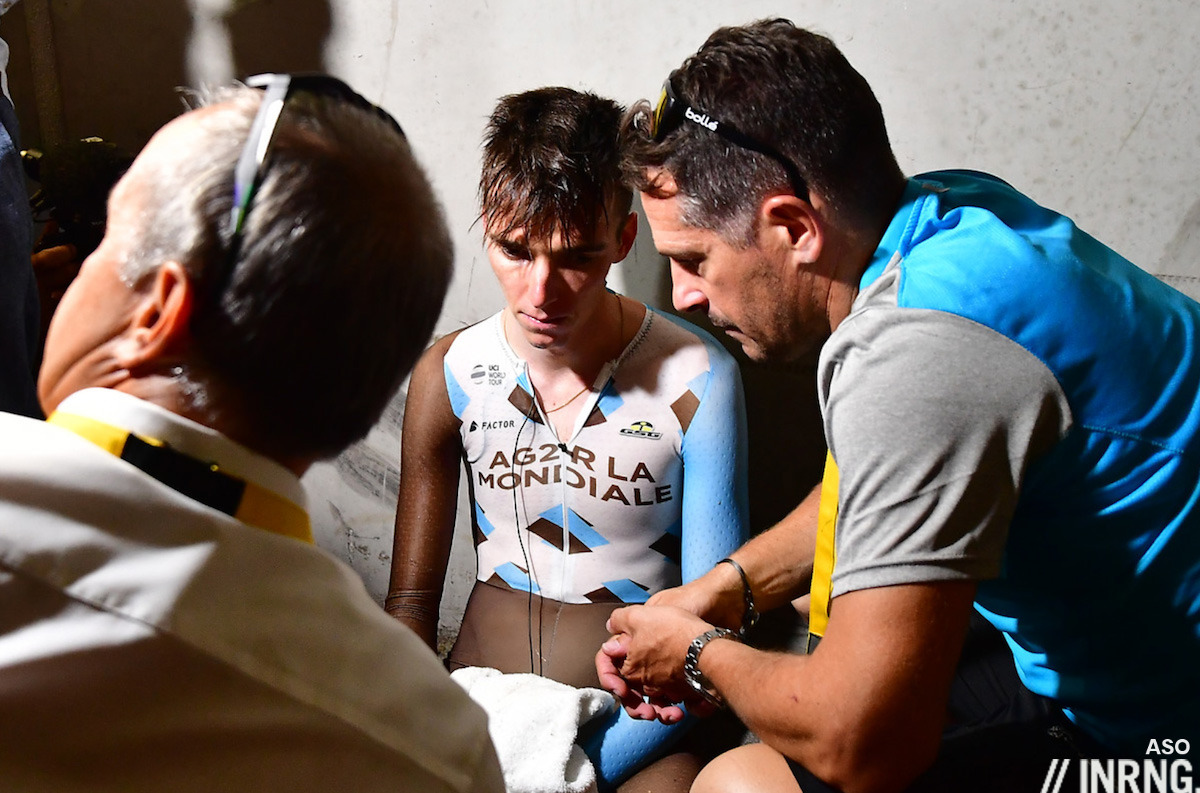
Ag2r are not Team Sky, their budget is less than half that of Sky. But they tried to ride like them at times, setting tempo in the mountains and this was something few other teams could match, even stalwarts like Astana and Movistar didn’t look so convincing. This time Bardet ground out that podium place, more power than panache but probably more satisfying as it suggests the performance is repeatable, especially if gains can be made in the time trials. This is possible give he was sick in Marseille and can work on simple things like trajectories to save seconds here and there.
We saw Warren Barguil delivering on the promise he’d shown earlier as neo-pro winning stages of the Vuelta. Injuries had gotten in the way – he’d fractured his hip in May – but things aligned in the Tour and he’d go on to take two stages and the polka dot jersey. This then saw him out of Sunweb and moving to Fortuneo for 2018, an unusual but explainable career move which was all engineered on the back of his riding in July.
Finally we saw Chris Froome pushed closer for once. He lost the yellow jersey to Aru and if Astana never looked convincing, Froome could have lost more time on the road to Peyragudes although he may well have still had a comfortable margin after the final time trial. If the end result was the same with four for Froome now and the Tour had too many (consecutive) sprint finishes there were plenty of other good stages and the short stage format bodes well for the 2018 route.

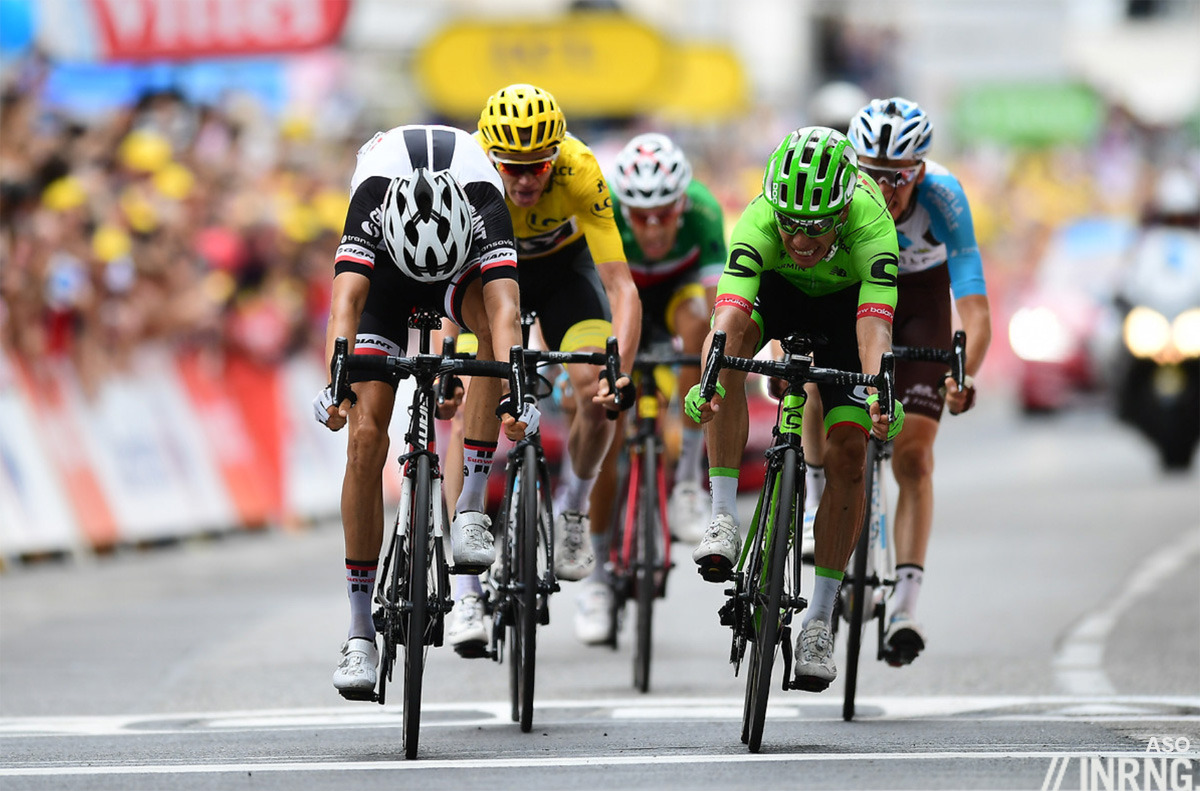
Did I miss part III?
Yes. It was the Giro Stage 20 to Asiago.
Note the date on the comment. For some reason IV was posted before III. I noticed it too.
…
and thanks Inrng for your work…..
I can only agree, this was draining as a viewer. Partly due to the whole stage being relentless, partly due to Porte’s crash. I really enjoyed the whole weekend (baring the crashes) and I hope for more stages like the one that Calmejane won and less sprint finishes.
Whilst you might not attack when someone has a mechanical – it has only ever been a ‘might’ and we can all come up with times when virtually any team has attacked in that situation (or even during calls of nature – and not just Dumoulin) – what I’m sick of hearing are the likes of Carlton Kirby suggesting that riders shouldn’t attack when someone crashes (e.g. Froome going off the road on one stage in the Tour, or was it the Vuelta?). That’s a racing incident and is often the rider’s fault: it’s never been the case that you don’t attack when someone falls off (with a caveat for Armstrong being brought down by a fan’s bag).
Also, the idea bandied about that the person in the yellow jersey should be more protected in such situations than his rivals for GC is clearly unfair.
I’m sick of hearing Carlton Kirby full stop.
Someone should start a petition to have him removed…
That would take someone of great enlightenment.
I can’t believe I’m commenting on this, but Lance et al. didn’t attack when Ulrich overcooked a corner (his own fault) and fell into the ravine below.
Can someone please take away my computer so I’m not tempted to comment further on this thread?
I know this won’t help much in your attempt to stop commenting, but I think that Lance generosity was quite cheap in that occasion, whereas he was famous for attacking merciless the rivals when they had whatever problem while they still were *actual* rivals in striking GC distance.
Mechanicals aren’t always bad luck, either. Andy’s notorious one probably wasn’t, for example. And without any special effort I can recall at least three mechanicals by Froome in key climbing moments of recent TdFs (not sure if any of them was a flat; and it’s also interesting that – as long as I know, but I mist admit I was quite distracted this year – they tend not to explain what exactly happened, like Contador but unlike, say, Nibali or Valverde; sponsor reasons, I guess).
That means it’s apparently more common for Froome to suffer this kind of situations than for other riders in a comparable position.
It might be just by chance, but it could also depend on little mistakes in his pattern of behaviour, or on some decision regarding the materials (Nibali famously long rejected EPS because he felt that he preferred to have most of the risk of any trouble on him himself rather than on mechanics or on the materials). If there’s a behaviour or technical factor, even if it’s probabilistic rather than deterministic, well, it’s just fair that you suffer the consequences of your capability or of your decision. Maybe some marginal gain is involved… and in that case, you just have to cope with the more or less marginal loss as a part of the game. The unfair play is the rest waiting for you, if anything.
A flat tyre is obviously on a different level, although I wouldn’t speak of pure bad luck in that case, either. It’s just on a different step of the luck ladder.
When crashes are concerned, a lot depends on the kind of crash and on the way different riders end up involved in a very same crash. Crashes can cover the whole scale ranging from nearly absolute bad luck to full responsibility.
Stage 9 was definitely a highlight of the year, some have claimed it to have been the best / most epic / whatever Tour stage for a number of years. It was a riveting watch from start to finish, though the Richie Porte crash was not good to see (it looked worse in real time than in the replays, at first I thought he had gone head first into the wall, when in fact he had slid across the road first, which was bad enough but it could have been much worse). The polemic around Fabio Aru / Chris Froome was overblown (as ever), Fabio Aru pushed his luck and Chris Froome pushed him off the road, a small small outbreak of handbags at dawn which had no effect on the outcome at all. The ride into town was fascinating, why did the other Riders cooperate with Chris Froome? would they have been better trying to isolate him or getting him to do the work to chase down Romain Bardet? The drama at the end fitted what had gone before, Warren Barguil thought he had won when he had not.
However the rest of the Tour really did not come close to the level of interest or excitement. The Giro was a far better race. The departure of Mark Cavendish & Peter Sagan (more endless polemic) and Armand Demare did rob the sprint stages of a lot of interest. The stage to Foix was good but did not change the balance of the race. Overall it all felt too preordained, if the excitement is based around hoping the leading rider has a crash or mechanical to give the other riders a chance that does not seem to be a recipe for a great race.
There was a lot of collateral damage that day; something like 11 riders lost to the race, and 5 riders quite seriously injured.
RCS had been forced, under criticism, to cancel their proposed ‘best descender’ prize at the Giro but at the Tour (and no more so than during this stage) the race almost took on that dynamic anyway.
It all made for compulsive viewing, so no criticism of Inner Ring’s choice, but then so did the day at the Dauphine.
And it left a rueful Dan Martin to ponder that “the organisers had got what they wanted”.
In contrast to Martin’s viewpoint, and I don’t want to downplay the risks these guys take, but I don’t think Martin’s/Porte’s crash was the fault of the organisers.
From watching that section, Porte looked awful, and Martin didn’t look much better. Neither are known for their bike handling or descending skills and it looked like they were on the absolute rivet trying to follow the wheels in front. That is a bit of an explanation, but there are no excuses in sport. Porte’s ultimate fatal mistake really was his own fault, and Martin’s fatal mistake was following Porte. Accidents are often accidents, but there are things you can do to prevent them, and neither of these guys, with all due respect, did what was necessary to prevent a brutal crash.
“Porte’s ultimate fatal mistake”
It wasn’t that bad; he’s still alive, nasty though the crash was.
haha, yes I was trying to be dramatic.
Clearly brutal descending killed his bid to win the yellow jersey
The Cavendish Sagan moment made me stop watching the Tour this year. With hindsight it seems I’ve missed a superb stage. But I was rooting so much for both guys I was way too much dissapointed.
“Social media was erupting like Krakatoa”
Wonderful.
Great summary and brings me back to the memories of following that stage last summer!
BTW – “Warren Bardet” won the polka dot jersey?
I thought that Urán pulling off the win without a functioning rear derailleur added greatly to the drama, and agree that this was a highlight for the season.
This. He won the stage having been stuck in 53×11 for almost all of the flat chase into the finish.
Technically he should have been relegated that day for holding onto the neutral service car (rule says you can’t in the final 20km and he got a lift uphill) but it was a popular win.
I hope that the Dauphine will be mentioned in this series. It was certainly the most interesting stage race of the year and the final stage hands down the best day of racing of 2017. Shame about the (lack of) TV coverage though, because all that was shown was the final climb to the finish. The scenario and virtual race lead changed multiple times and the drama continued until the finish line. Brilliant race overall. Just a shame that the Tour was yet another anti-climax to it.
Beg your pardon for repeating myself, but the below copy-pasted comment really belonged here, it ended up in Highlights III when this post suddenly disappeared (see above):
– – –
A great stage, but too few for a generally poor Tour (once again).
But let me split down this sentence:
“As the dominant event on the calendar (YES!) it attracts the best riders (NOT THAT MUCH…) at the top of their game (NOT ALL OF ‘EM) but this alone doesn’t ensure good racing (SURE)”.
Froome wasn’t at the top of his game, I believe, but that’s a detail. What’s more relevant is that maybe for the first time in the last couple of decades (after a dark decade, then years of chase and eventually some “nearly-a-draw”), the Giro had a slightly better set of GC riders, as a whole.
Contador, Quintana and Froome weren’t quite surely at the top of their game, even if in a very different measure. Froome’s condition is open to debate, but many – and many reader here, too – already pointed out the possibility he wasn’t at his top watching the race, without needing to watch what would happen at the Vuelta to confirm a strategic preparation.
Dumoulin, Quintana and Nibali is a way more impressive podium than Froome, Urán, Bardet, although I think that Urán is generally underrated. The rest of the top ten was more or less comparable, especially if we consider the level of performance actually produced by Contador. The comparison stays valid, even with a shade of superiority for the Giro, perhaps, if one looks at the top 20.